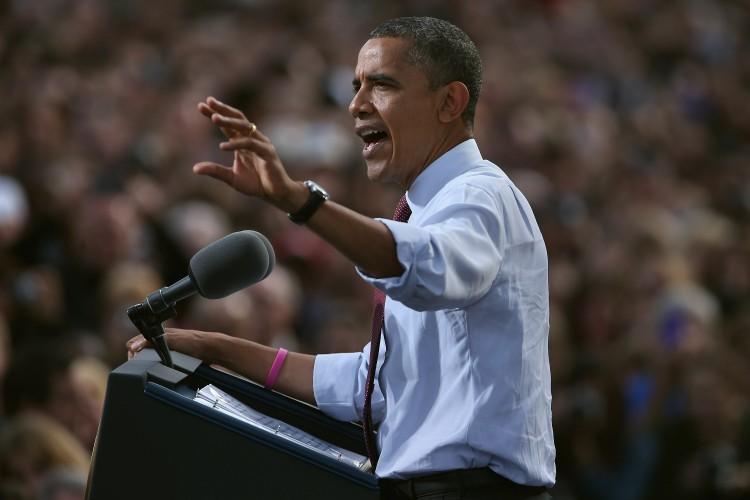WASHINGTON—GOP candidate Mitt Romney’s performance in the debates has elevated him to presidential status, and while he polls ahead in the popular vote the week before the election, President Obama appears to have the lead in electoral votes.
And that’s what counts, say political analysts.
“The news says that Romney is ascendant after a terrible summer and September,” ABC News Political Director Amy Walter told a forum at the Aspen Institute in Washington, D.C., Oct 24. “But people don’t elect the president, the Electoral College elects the president, and the president has an edge in the Electoral College race.”
Unlike some democracies that elect leaders through a “one man-one vote” system, the U.S. president and vice president are elected at the state level through state-nominated electors collectively known as the Electoral College.
There are 538 electors in total, each state allocated electors according to the combined number of U.S. House and Senate members. California, for example, has 53 representatives, and with the two senators allocated to each state, has a total of 55 electors.
Seven states: Wyoming, Alaska, Delaware, Vermont, Montana, and the Dakotas, plus the District of Columbia (D.C.), have one representative and the required two senators, giving them a minimum of 3 electoral votes.
The District of Columbia is the only nonstate allocated electors, while territories like Guam, American Samoa, and Puerto Rico remain unrepresented.
Electors are selected by state party officials and are largely anonymous, represented on the ballot as a party block. This year voters will select either the Democratic block “Electors for Barack Obama and Joseph Biden,” or Republican “Electors for George [Mitt] Romney and Paul Ryan.”
Critics have argued that the Electoral College system gives swing states disproportionate influence in presidential elections. Supporters say it is a defining feature of U.S. federalism and protects the rights of smaller states.
In most states it’s winner take all. For example in California, the country’s most populous state, Republicans may get 45 percent of the vote, but with Democrats dominant Obama is likely to win all the electoral votes, said Thomas Beale, election analyst with the Congressional Research Service.






